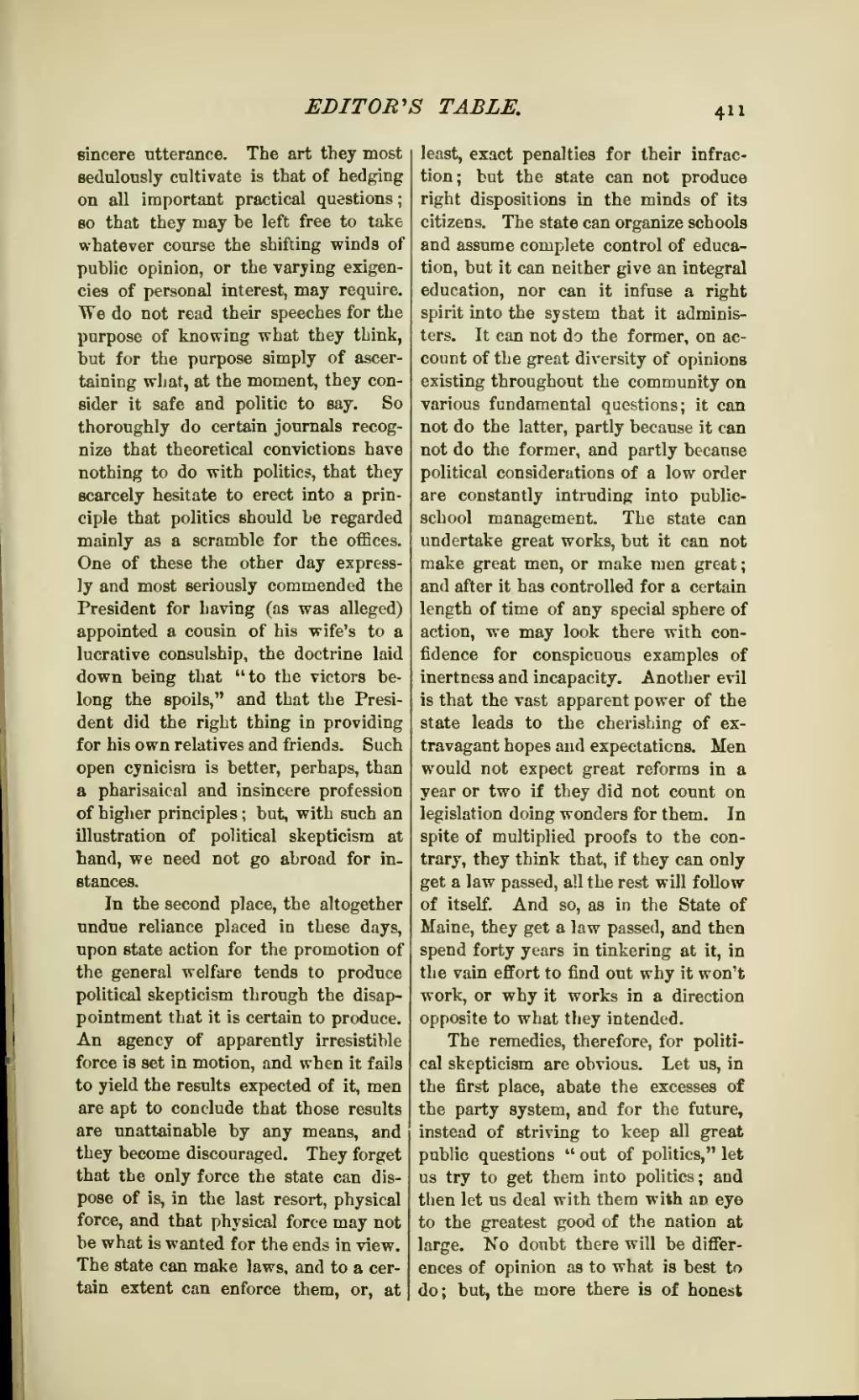sincere utterance. The art they most sedulously cultivate is that of hedging on all important practical questions; 60 that they may be left free to take whatever course the shifting winds of public opinion, or the varying exigencies of personal interest, may require. "We do not read their speeches for the purpose of knowing what they think, but for the purpose simply of ascertaining what, at the moment, they consider it safe and politic to say. So thoroughly do certain journals recognize that theoretical convictions have nothing to do with politics, that they scarcely hesitate to erect into a principle that politics should be regarded mainly as a scramble for the offices. One of these the other day expressly and most seriously commended the President for having (as was alleged) appointed a cousin of his wife's to a lucrative consulship, the doctrine laid down being that "to the victors belong the spoils," and that the President did the right thing in providing for his own relatives and friends. Such open cynicism is better, perhaps, than a pharisaical and insincere profession of higher principles; but, with such an illustration of political skepticism at hand, we need not go abroad for instances.
In the second place, the altogether undue reliance placed in these days, upon state action for the promotion of the general welfare tends to produce political skepticism through the disappointment that it is certain to produce. An agency of apparently irresistible force is set in motion, and when it fails to yield the results expected of it, men are apt to conclude that those results are unattainable by any means, and they become discouraged. They forget that the only force the state can dispose of is, in the last resort, physical force, and that physical force may not be what is wanted for the ends in view. The state can make laws, and to a certain extent can enforce them, or, at least, exact penalties for their infraction; but the state can not produce right dispositions in the minds of its citizens. The state can organize schools and assume complete control of education, but it can neither give an integral education, nor can it infuse a right spirit into the system that it administers. It can not do the former, on account of the great diversity of opinions existing throughout the community on various fundamental questions; it can not do the latter, partly because it can not do the former, and partly because political considerations of a low order are constantly intruding into public-school management. The state can undertake great works, but it can not make great men, or make men great; and after it has controlled for a certain length of time of any special sphere of action, we may look there with confidence for conspicuous examples of inertness and incapacity. Another evil is that the vast apparent power of the state leads to the cherishing of extravagant hopes and expectations. Men would not expect great reforms in a year or two if they did not count on legislation doing wonders for them. In spite of multiplied proofs to the contrary, they think that, if they can only get a law passed, all the rest will follow of itself. And so, as in the State of Maine, they get a law passed, and then spend forty years in tinkering at it, in the vain effort to find out why it won't work, or why it works in a direction opposite to what they intended.
The remedies, therefore, for political skepticism are obvious. Let us, in the first place, abate the excesses of the party system, and for the future, instead of striving to keep all great public questions "out of politics," let us try to get them into politics; and then let us deal with them with an eye to the greatest good of the nation at large. No doubt there will be differences of opinion as to what is best to do; but, the more there is of honest

